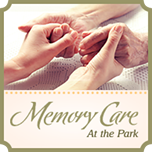Oral health is an important, yet often overlooked component of a senior’s health and well-being. People tend to view their teeth and gums as something that’s supposed to deteriorate as you age. This is not the case. You only have one set of adult teeth. It’s best to take care of them by brushing and flossing every day. Not to mention, oral infections have the potential to spread to other parts of the body. Dental hygiene is extremely important at any age. Unfortunately, seniors face a unique set of dental issues. Below details some of the oral complications that are unique to seniors:
Gum Disease
Many older adults are affected by gum disease or periodontal disease. Why’s that? It’s due to the early stages of the disease. It’s practically a painless condition until it becomes more advanced. In the early stages, you may notice that your gums are a little swollen, and they may bleed a little more when you’re brushing them. However, that’s not enough to alarm some people, so the disease progresses.
The gums can then pull away from the teeth and form deep pockets. This provides a greater area for food to get stuck in, more plaque to develop, and bacteria to spread rapidly. This can eventually lead to a loss of gums, bone, and ligaments that hold the teeth in place. That’s why it’s important for your loved one to keep up with their bi-annual checkups. Making sure they get to the dentist is enough to ensure the advanced stages of gum disease are never reached, on top of brushing twice a day and flossing at least once, of course.
Eating Difficulties
Oral damage above or below the gum line can make it nearly impossible for seniors to eat. Their lack of appetite might not just be a condition that comes on from aging. They could have oral issues. With problems like missing teeth, ill-fitting dentures, or troublesome bridges, eating difficulties can force seniors to modify their chewing habits. Again, make sure you’re monitoring their eating habits. It’s true that seniors do not eat as much as middle aged or teenaged individuals. However, it could also be due to any of the oral issues listed above.
Dry Mouth
Bouts of dry mouth called xerostomia are common among seniors, but just like cognitive decline or falls, should not be a normal part of aging. Saliva plays a crucial role in the eating and digestion process. It helps your senior loved one with chewing, eating, and swallowing. It’s also a major issue when it comes to eating difficulties.
However, saliva is also crucial in preventing tooth decay. Without the normal amount, your mouth has a lesser chance in preventing a bacterial infection and, in turn, cavities. Many seniors take daily medications to treat or manage illness. Unfortunately, a number of those medications cause dry mouth. Examples include decongestants, antihistamines, and blood pressure medications. These are all very common medications to control some very common conditions. We do not suggest in stopping with these medications. However, you will need to ensure that your senior loved one is drinking enough water from day to day. This will help with the dryness and help maintain saliva production to fight the bacteria in your loved one’s mouth.











